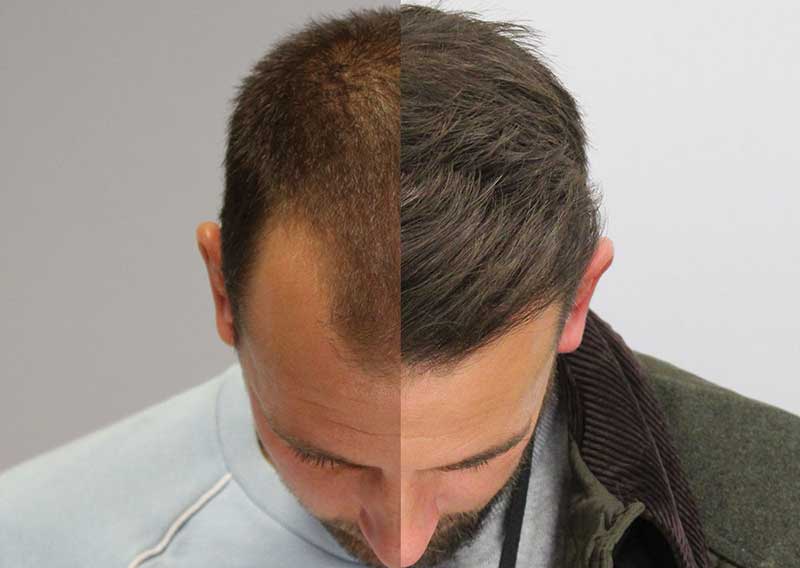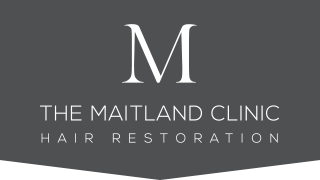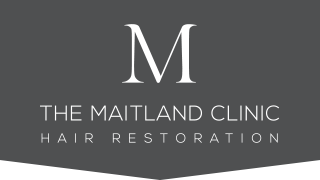What are the best hair loss treatments?
24th June 2024

Key takeaways
- Hair loss can impact you emotionally, psychologically, and socially, with some studies showing that people with hair loss are more likely to be diagnosed with new-onset anxiety or depression.
- Hair restoration treatments have progressed rapidly over recent years meaning a wider range of solutions now exist which offer natural-looking results.
- Popular non-surgical treatments include hair loss medication, laser therapy, and Platelet-Rich Plasma treatment.
- Advanced surgical treatments include Follicular Unit Extraction and Follicular Unit Transplantation techniques.
- Ultimately, the best hair loss treatment choice for you will depend on lots of individual factors. A consultation with our team can help you to learn about your different options and how effective each treatment is, allowing you to make a fully informed choice.
“In recent years, scientists are getting closer to solving the riddle of hair loss,” says Dr Edward Ball, founder, medical director, and hair restoration surgeon at The Maitland Clinic. “With cutting-edge technology and innovative treatments becoming more and more available, we can now offer solutions that we once thought impossible.”
Hair loss is no longer an unsolvable problem. Thanks to recent advancements, individuals experiencing hair thinning or baldness have more options than ever before. At our multi-award-winning hair restoration clinic, we’re at the forefront of the field, offering a range of the very best hair loss treatments. In this blog, we’ll explore the most innovative and effective hair loss treatments available today.
The evolution of hair loss treatments
The journey of hair loss treatments has evolved significantly over the years. From ancient herbal remedies to modern pharmaceuticals, the quest for effective solutions has been relentless.
For good reason too. Hair loss can have a significant emotional impact on people. A review of multiple studies into people with androgenetic alopecia (the most common form of hair loss that causes pattern baldness) found that people with this form of hair loss suffered from feelings of anxiousness, helplessness, and diminished self-esteem. Another UK-based study explored the association between alopecia and mental health, finding that adults with alopecia areata are at 30-38% higher risk of being diagnosed with a new-onset of depression or anxiety, compared to a control group.
Modern-day hair transplant techniques were pioneered by a Japanese dermatologist in the 1930’s, but these aimed to treat damaged eyebrows or lashes rather than treat hair loss on the scalp. Over time, these techniques evolved, and in the 1950’s, the first successful hair transplant to treat male pattern baldness occurred.
While hair loss surgery technically worked, for years, it produced quite an ‘obvious’ result and involved a very intensive procedure.
As research has progressed, hair transplants have become incredibly advanced, producing natural-looking and effective results. A wide range of non-surgical hair restoration options have also been developed, meaning that there are now treatments available for those who aren’t a candidate for a hair transplant.
But with so much choice now available, it can be overwhelming to know which treatment is the right choice. Which is the best hair loss treatment for you? Let’s walk through some of the options.
Hair loss treatments at The Maitland Clinic
| Treatment | Type | Method |
| Hair loss medication | Non-surgical |
|
| Laser treatment | Non-surgical |
|
| Platelet-Rich Plasma (PRP) treatment | Non-surgical |
|
| Follicular Unit Transplantation (FUT) | Surgical |
|
| Follicular Unit Extraction (FUE) | Surgical |
|
Which is the best hair loss treatment for me?
There are a range of factors which may influence which treatment may be most effective for you, including:
- your age and overall health
- your gender
- the type and extent of your hair loss
- your availability of healthy donor hairs
- your hair goals and expectations
- your lifestyle.
Our extensive consultation procedure helps us to explore these factors, as well as analyse your scalp and hair. In general, we recommend non-surgical solutions for individuals in the earlier stages of hair loss, for instance, with hair thinning. These treatments can help to delay hair loss and promote healthier hair growth. In many cases, treatments need to be continually adjusted and adjusted to maintain results.
If non-surgical treatments stop working, or if we see someone with a more advanced stage of hair loss, we may recommend a surgical hair transplant. A transplant procedure can help to provide long-lasting hair improvements. We believe in only recommending this option if we feel it will effectively enhance your hair and is safe to do so, considering you as an individual.
Ready to explore innovative hair restoration treatments?
Using the latest evidence-based techniques and with a team of highly skilled and dedicated hair restoration specialists, we aim to bring you the very best hair loss treatments available.
Taking the time to understand your unique needs and develop a personalised solution, we strive to achieve authentic-looking results that will help make you feel more confident. To learn more about our hair loss clinic or to start your treatment journey, get in touch with us today by completing our enquiry form or calling us on 02392 706122.










